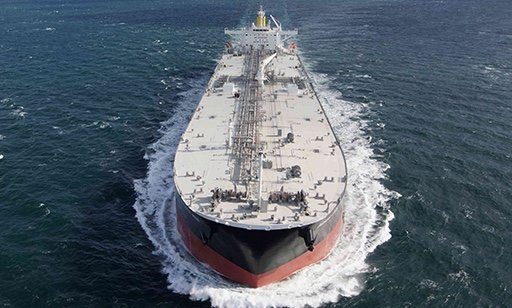Building global traders

Signal Maritime Services CEO, Panos Dimitracopoulos discusses how to best give new chartering executives the skills needed to work to their full potential.
For a newcomer to the shipping industry, the business of chartering can seem complicated and wrapped in mystique. Great chartering managers do not necessarily make great teachers, so the time needed for a new team member to gain a comprehensive view of the market, the ships, the terminology not to mention the company and its culture, can be significant. Every newcomer is different: we see people with very diverse experiences, cultures and skill-sets joining Signal Maritime. How do you best train people so that they can add value as quickly as possible?
It’s a common problem faced by shipping companies, brokerages and trading houses around the world and one which has only been made more difficult with the onset of COVID-19 and work-from-home. Whilst the excellent qualifications issued by organisations such as the Institute of Chartered Shipbrokers lead to an in-depth understanding of commercial shipping, studying for its many diplomas is a significant undertaking and can be somewhat removed from the day-to-day knowledge needed to hit the ground running.
At Signal, we spotted this educational gap and tried to build a framework that would help us onboard new joiners quickly and effectively as well as share knowledge across the company. For us it is critical that all members of the team understand the vessel fixing cycle and markets, how to monitor the competition and how to identify the best chartering strategies. We run a growing pool of around 30 aframaxes which trade globally, so it’s critical that our expanding team is able to service it effectively as quickly as possible.
Twenty years ago when I first entered the shipping industry, I was told by the senior chartering managers that it was “too difficult” to quickly explain how it all works in different parts of the world. I learnt the long way and put my time in focusing on one route, and learning about the wider market by listening, researching and building relationships. Fast forward to 2020 and today’s newcomers who have graduated from the Signal Academy can successfully trade a ship within two months.
Thanks to the visual tools and processes which we have developed, global trading is the norm for all team members.
The Signal Chartering Academy is focused on turning the participant into a trader with a global mindset. We want them to be able to fix tankers in the spot market, by taking into account all alternative scenarios, trading patterns and triangulation, position value concept and reposition strategies. We do not want them to focus on one specific route for years.
We start with the tanker shipping basics, following the vessel’s fixing lifecycle and covering the interaction with other functions such as geographical repositioning, operational challenges, bunkering operations, etc.
But how do achieve such speedy results? It’s really a combination of technology with a structured threefold learning approach which includes (a) self-reading and practice, (b) understanding of daily chartering tasks and (c) physical rotation to other interconnected shipping functions such as operations, freight, bunkering and disbursement accounts.
But the game-changer has been The Signal Ocean Platform. It helps us analyse the market, assisting the user to time his or her fixing in volatile markets, the optimal deployment and triangulation of a vessel or fleet and other commercial decisions.
Chartering is heavily based on relationships; this is something which I learnt early in my career and something which is still the case. We totally believe in relationships and respect market structure. Our goal is to provide young professionals with the knowledge and tools to get up to speed,able to make informed decisions within an accelerated time frame and focus on developing their relationships with their counterparts.
I firmly believe that structured onboarding processes lead to a homogeneous culture in the medium term. The robust onboarding process along with the continuous learning experience represent key pillars for any agile organisation in the longer run. Shipping companies will benefit by enhancing their onboarding programs and knowledge sharing culture. Only through sharing and a culture of openness can there be fast and effective onboarding for new joiners. We are keen to share this knowledge and help support individuals at the beginning of their career in shipping. We hope to make our programme free and accessible to all next year and are also interested in collaborating with other companies to build on our programme. Watch this space.

As a fresh team member of the Chartering department of Signal, I have graduated from the Signal Chartering Academy lately.
I much enjoyed the whole training and I can describe the Academy as a hands-on, extremely well structured, interactive and to-the point experience. The multimedia (guides, videos, Signal Ocean platform) made me in depth and practically understand previously unknown to me material such as position value adjustment. Through daily routine and departments rotation, I put myself in our Chartering Officers’ shoes, I made clear how other key departments work and how our Chartering department is connected with them.